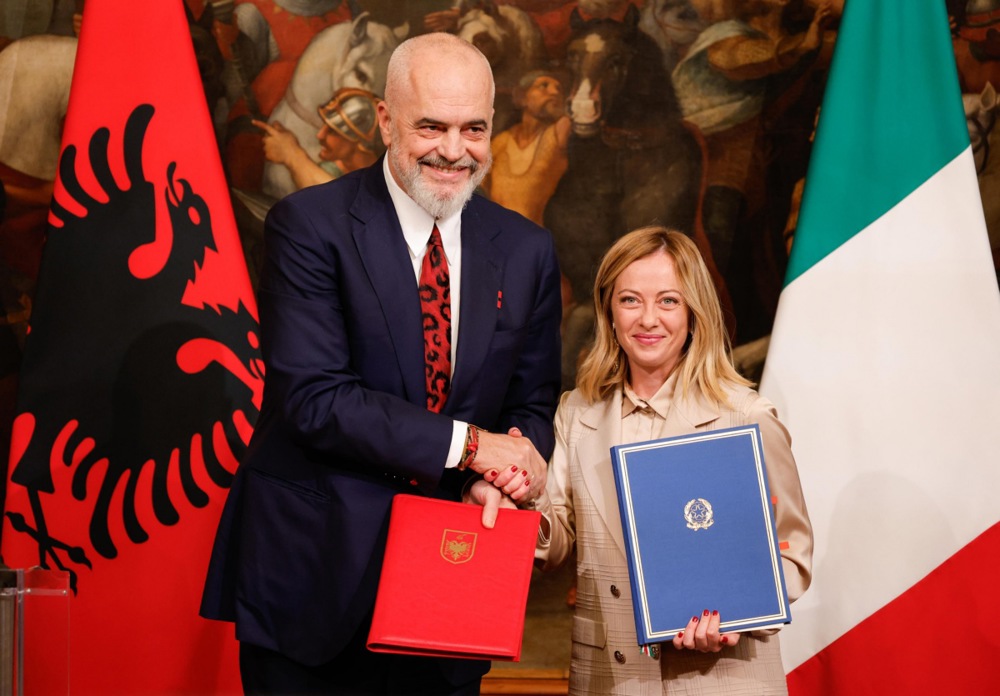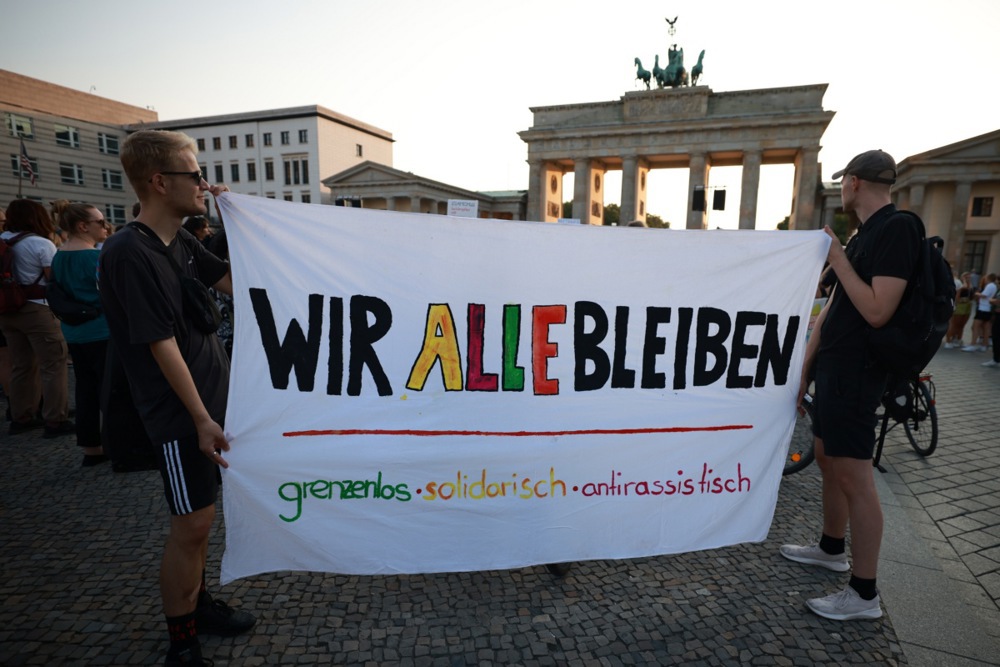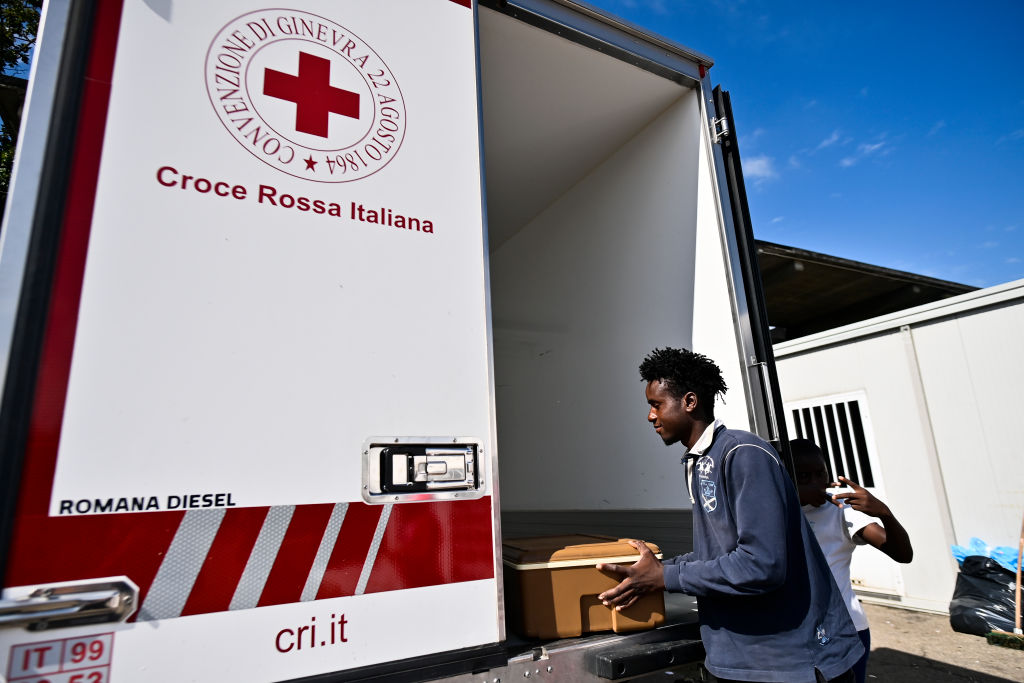Italy has started to transfer the first group of migrants to Albania as part of its initiative to accommodate them abroad while processing their asylum applications.
The move is part of the country’s efforts to mitigate illegal migration. It is attempting to demonstrate to would-be asylum seekers that they will not be able to stay in Europe if they enter the continent illegally.
On October 14 an Italian naval ship left from Lampedusa, the island that became notorious over the past months for mass landings of migrants, bound for Shen Gjin, an Albanian port city.
Onboard were 16 men — 10 from Bangladesh and 6 from Egypt — picked up at sea by Italian patrol boats in international waters near the Libyan coast, en route to Italy.
The asylum seekers met the criteria of the Albania-Italy protocol, specifically that they come from safe countries, are adult males and are not considered vulnerable.
Services for women, children, the sick, and other vulnerable individuals — who have a higher chance of receiving asylum — will still be handled through Italy’s regular asylum system, while adult men, who are more likely to face rejection, will be processed abroad, preventing them from remaining illegally in Europe.
According to a spokesman from the Italian interior ministry, the ship is expected to arrive in Albania on the morning of October 16.
Despite the migrant centres being on Albanian soil, they are managed by the Italian Government.
With the transfer, Italian Prime Minister Giorgia Meloni has seen her high-profile anti-mass migration plan come to fruition after some delay.
“We took extra time”, Meloni said, “so that everything was done in the best way, but we are very satisfied with the results of this work”.
She said it was “a new, courageous, unprecedented path, but one that perfectly reflects the European spirit and that has all the credentials to be taken with other non-EU nations as well”.
“Italy has set a good example,” Meloni added.
Albanian Prime Minister Edi Rama told Italian daily La Stampa: “These migrants arriving at our shores are human beings. The agreement with Italy will guarantee a safe mechanism that complies with procedures. In a word, humanitarian.”
Rama, who is in Berlin for the Western Balkans summit and will then discuss new chapters in his country’s accession to the European Union in Luxemburg, said the migrants were “people in search of a new life, who probably paid dearly to the traffickers for the price of a dangerous journey”.
“They are human beings who must be welcomed, registered and placed in reception centres built according to EU standards, to then complete the asylum request procedure in Italy in safe and correct conditions from a humanitarian point of view.”
Rama highlighted the role of Italy several times and stressed the friendly relationship between Albania and Italy, describing the two countries as being “like a de facto couple.”
European Commission President Ursula von der Leyen has endorsed the Albanian-Italian project. She said the project was “an example of out-of-the-box thinking, based on fair sharing of responsibilities with third countries in line with obligations under EU and international law”.
Externalising processing of migrants is also scheduled to be discussed at the European Council in the week starting October 14, and von der Leyen urged heads of state and governments to “explore” the possibility, drawing “lessons from the Italy-Albania protocol”.
Human rights groups and open-border activists have opposed the externalisation of the asylum process and said it set a dangerous precedent.
Amnesty International said the scheme was a “cruel experiment [that] is a stain on the Italian Government”.
France has signed a joint cooperation deal with Italy aimed at fighting illegal immigration, marking a sharp turn for Paris on the issue. https://t.co/Zcsgbobibx
— Brussels Signal (@brusselssignal) October 7, 2024





